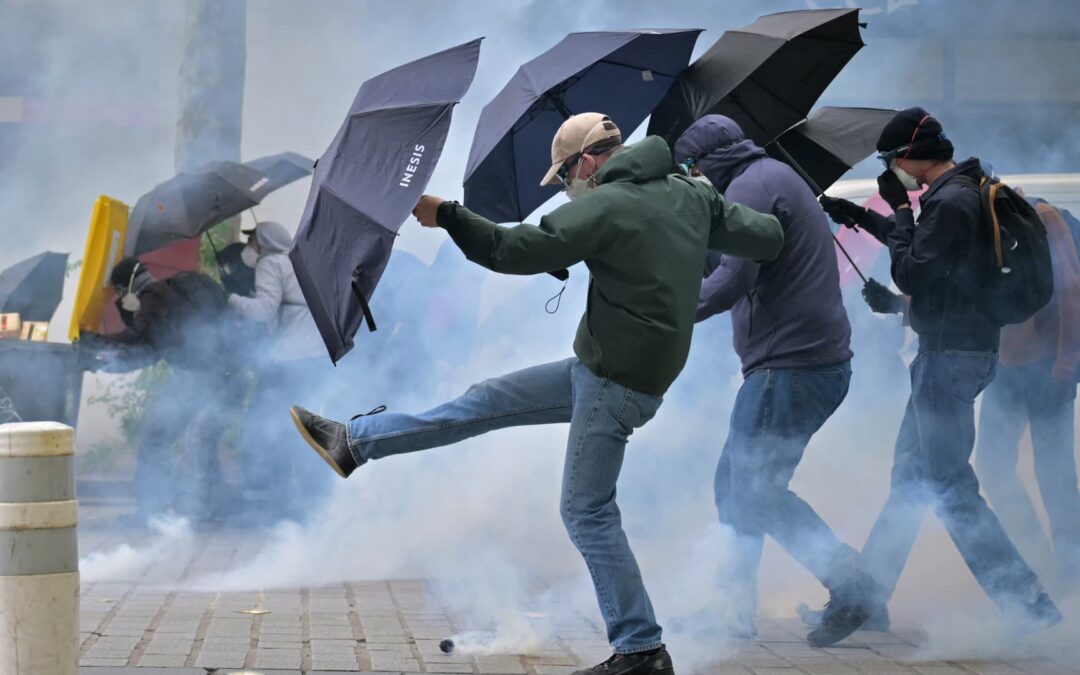Protesters gather during an anti-far-right rally after French President Emmanuel Macron called legislative elections following far-right parties’ significant gains in European Parliament elections in Paris on June 15, 2024.
Lou Benoist | Afp | Getty Images
French President Emmanuel Macron is facing a reckoning after the country’s far-right made historic gains in the first round of a snap parliamentary election.
The National Rally (NR), led by firebrand Marine Le Pen, and its allies secured over 33% of Sunday’s vote in a staunch rebuke of Macron’s centrist and globalist policies. If they go on to win an absolute majority during the vote’s second round on Sunday, Macron’s power will be severely weakened.
Calling the election was a high-stakes gamble for the French president of over 7 years. He characterized the race as a choice between nationalism and demagoguery or liberal values and a strong, united European Union — but many now think his gamble backfired.
Thomas Piketty, bestselling French economist and economics professor, pointed to what he described as one of Macron’s biggest mistakes: neglecting and demonizing France’s left wing.
“What I am a bit concerned with is that the current government has tried to demonize the left in recent weeks, days, months — although Macron would never have been elected without the left,” Piketty, who authored the book “Capital in the Twenty-First Century,” told CNBC’s “Street Signs Europe” on Monday.
“Without the left vote in favor of Macron against Le Pen in 2022 and 2017, he would not be president, and he never really tried to do something together in the end with the people who made him president.”
Piketty described France as having three main voting blocs: the far-right, the centrist business bloc, and the left. He described Macron’s centrist party, Renaissance, as getting votes in “the very fancy places of the country” where there are concentrations of business elite, saying that “they thought they could remain in power just catering these groups.”
Macron’s supporters and the left are now scrambling to join forces and stop the far-right from dominating France’s legislature, as they did in the 2022 and 2017 presidential elections. But many of Macron’s policies, like slashing welfare, raising the national retirement age and repressing protests, have served to alienate left-wing voters.
“You cannot govern the country like this, with such a narrow electoral base, for very long,” Piketty said.
“I think this is a big lesson for this election which also holds for other countries: The idea of putting the center-right and center-left together, and [the] winners of globalization together, governing the country against the left, against the right, is not something that can work for very long.”
Macron called the snap parliamentary election on June 9 following a stinging defeat in European Parliament elections which saw major gains for right-wing parties in several countries including France, Germany and Austria.
Ahead of the second round of elections for France’s 577-seat National Assembly, over 200 candidates have said they will drop out of the race, Reuters reported citing local media, to avoid splitting the anti-far-right vote.
To this end, Macron has urged unity among the center-left and center-right, calling for a “wide-ranging rally behind republican and democratic” candidates.









